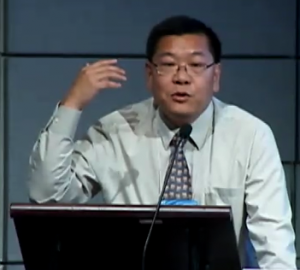
Abstract
This year marks the bicentennial of Darwin’s birthday, and the sesquicentennial of the publication of “The Origin of Species”. 2009 also marks the 20th anniversary of the invention of the Web by Tim Berners-Lee. These momentous occasions provide a fitting opportunity to reflect on how the conception of scholarly communication and scientific discoveries have evolved from the time of Darwin to the present. Using the publication of “The Origin” and the subsequent acceptance of the theory of evolution as a case study, we look at how new knowledge was formalized from the vast amount of data collected by Darwin, his prodigious private correspondence and personal notebooks, into the public record in the form of books, journal articles, and public lectures. I argue that just as evolution provides an overarching and coherent framework for organizing and making sense of biological diversity, the Web and open access are providing unprecedented opportunities for the framing and reframing of scholarly inquires, and calling into question the nature of authority in the knowledge production process. I will provide examples to show that just as species are mutable, so too are knowledge domains, authority, and disciplinary boundaries in the open and generative web environment.